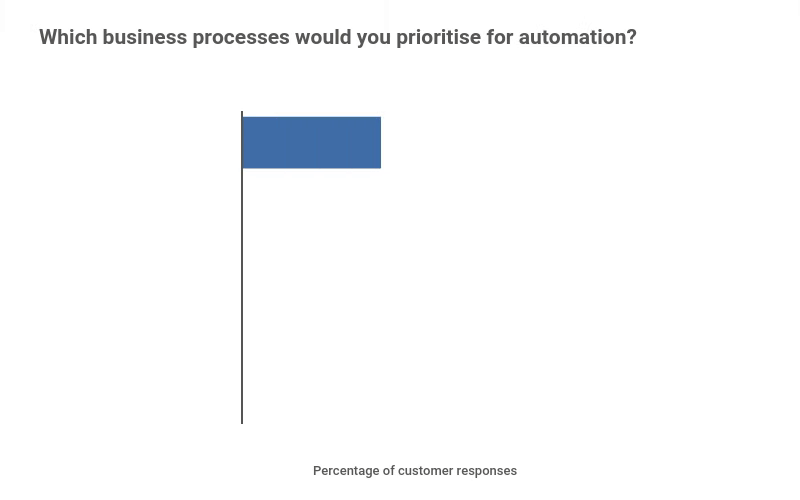Optimising Order-to-Cash: A Guide for Trade Creditors – Part 3
Part 3: How automated decisioning systems can improve efficiency across the O2C process
In today’s world, automation is becoming increasingly important to meet consumer expectations for instant responses and improve efficiency in trade credit processes.
Many firms are embracing automated insight and decisioning tools to save time, reduce manual overhead, and enhance customer experience. Experian has interviewed credit professionals from across the trade credit space to identify the most pressing challenges in the customer lifecycle and how automation can address them.

The feedback indicates that automation can provide value across various stages of the trade credit lifecycle, including:
- Collections: Automated payment notices make it easier to reach rogue customers early and often, saving time in chasing late payments.
- Risk and eligibility checks: Automation improves the speed, accuracy, and volume of decisions on acceptance, amount, and terms.
- Customer onboarding: Automation to verify a customer’s identity, address, and bank account ownership at the point of sign-up streamlines onboarding, reduces fraud, and minimises missed payments.
- Direct-debit verification: Automated direct-debit verification takes the onus off customers and helps businesses avoid future payment delays and limit their exposure to late payments.
What are the steps of a successful automation development?
To successfully develop automation, it is crucial to engage with key stakeholders, such as IT, procurement, vendors, and senior leadership, to identify a clearly defined problem where automation can demonstrate its value quickly. This can involve implementing, testing, and trialing automation in a sandbox, on select data sets, and then in live deployment. Comparing new automation models against old processes can help validate the benefits and prove the impact to senior leadership.
How does Experian help trade creditors?
Experian provides automation technology that can revolutionise the credit control process for trade creditors:
1. DecisionIQ: Experian’s DecisionIQ takes the heavy lifting out of credit assessment by automatically accepting and declining businesses that match creditors’ risk policies, leaving risk teams with more time to make the right decision in borderline cases.
2. Web-based screening: Experian’s web-based screening, delivered through an API straight into a chosen piece of software, helps streamline onboarding, presents businesses with the most viable customers, allows for processing of applications outside of traditional business hours, and removes the need for paper-based applications.
3. Business Profile API: Experian’s Business Profile API provides high-level information on prospective customers and can be plugged into CRM systems to support streamlined decision-making and pre-population of applications, reducing the risk of errors made with manual uploads.
4. SME portfolio analysis: For trade creditors with SME firms and smaller businesses in their portfolio, Experian draws links between small businesses and directors’ consumer data to provide a clearer picture of financial health.
5. ERP system integration: Experian APIs work universally with ERP systems, and Experian collaborates with clients’ technical teams to integrate these tools quickly into any organization.
6. Experian Bank Wizard: Experian Bank Wizard automatically validates and verifies commercial business accounts, which can be deployed across a portfolio or embedded as part of the customer onboarding process, making it simple to set up direct debits and reduce risk with all new clients.
Interested?
Get in touch with us to see how your trade credit business can meet the challenges of our times with more effective, fairer lending.










